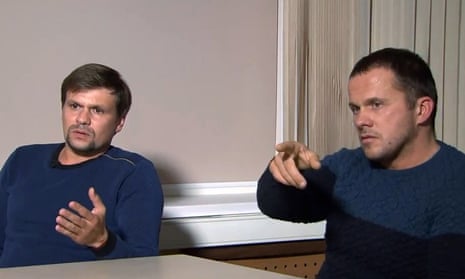The Foreign Office has banned Russia’s RT and Sputnik news organisations from attending a global conference on media freedom in London because of their “active role in spreading disinformation”.
Sixty ministers and 1,000 journalists and members of civil society are expected to attend the meeting, co-hosted with Canada, on Wednesday and Thursday.
“We have not accredited RT or Sputnik because of their active role in spreading disinformation,” a Foreign Office spokeswoman said. “While it’s not possible to accommodate all requests for accreditation, journalists from across the world’s media are attending the conference, including from Russia.”
The Kremlin said it regretted the decision, which it described as absurd. “There can be no conference about the freedom of the press when journalists are barred from taking part in it,” said the Kremlin spokesman Dmitry Peskov. He mocked what he called “the absurdity of what is happening”. “We can only regret this,” he added.
The Russian embassy previously condemned the decision relating to RT as “direct politically motivated discrimination” and said it had complained to the Foreign Office. In a statement on Friday, it said RT had been told there was no space for its journalists at the conference.
After the Foreign Office comments on Monday, RT said in a statement: “It takes a particular brand of hypocrisy to advocate for freedom of press while banning inconvenient voices and slandering alternative media.”
In December the British media regulator Ofcom found RT had broken impartiality rules with several programmes broadcast after the nerve agent attack in the English city of Salisbury. Moscow has denied claims by London that it approved the attack on a former Russian double agent in March last year.
Organisers of the London conference say it is intended to increase international discussion and cooperation on the issue of media freedom, including fake news.
The international human rights lawyer Amal Clooney will attend in her capacity as Britain’s special envoy on media freedom. She will convene the first meeting of an independent panel of experts to look at how to strengthen national legislation to protect journalists.
The final guest list has yet to be published, but officials said the only countries not invited to the conference were North Korea, Syria and Venezuela.
In advance of the conference, Britain announced £18m to counter disinformation across eastern Europe and to strengthen independent media in the western Balkans. It is part of a £100m, five-year commitment aimed at eastern Europe and central Asia.
